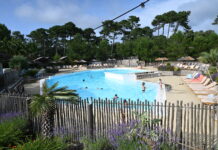Surfing has a richer and deeper background than you might think. It’s origin is from the Polynesian Island in the pacific ocean. Think of Island as Hawaii, Tahiti and the Cook Island.
But surfing was also done in West Africa and Peru. But in Hawaii surfing advanced the most and is best documented.
Hawaiian people integrated surfing into their culture and made surfing more of an art than anything else. And wave riding had a spiritual and social signifigance for Hawaiians.
They for example prayed for waves with a priest (called Kahuna). And gave thanks after surviving a serious wipe-out.
But they were also competing. Who could ride the fasters, biggest waves? You could gain respect and social status doing that. The cool thing was, that everybody joined. Women, men and children.
Many hawaiians road alaia boards. Boards we see more and more nowadays. Thin woorden boards without fins. But you also have olo and paipo boards. The Paipo is more compared to the shortboards we have now. The Olo board was massive. A super longboard up to 18 feet! Without fins.
The first documentation of surfing was done by a surgeon on the ship of Captain James Cook in 1777.
When Americans came to Hawaii, they didn’t think much of surfing. They even discouraged it.
Surfing almost died when European and American diseases came to Hawaii the population decreased enormously. By that time there were hardly any surfers left.
But in 1907 a guy called George Freeth came to California and did some surfing demonstrations at Huntington Beach. And in 1914 Duke Kahanamoku (The Duke) made his way to Australia and New Zealand. And everybody got enthusiastic about surfing in this region.
More and more Americans came to Hawaii and in 1959 Hawaii became a status of the United States. The Americans started to promote surfing. Today, surfing is a multi-billion-dollar global industry, with tens of millions of enthusiasts worldwide. For some it’s a serious sport; for others, just a way to let loose.
And luckily the Hawaiian kept their rituals.












